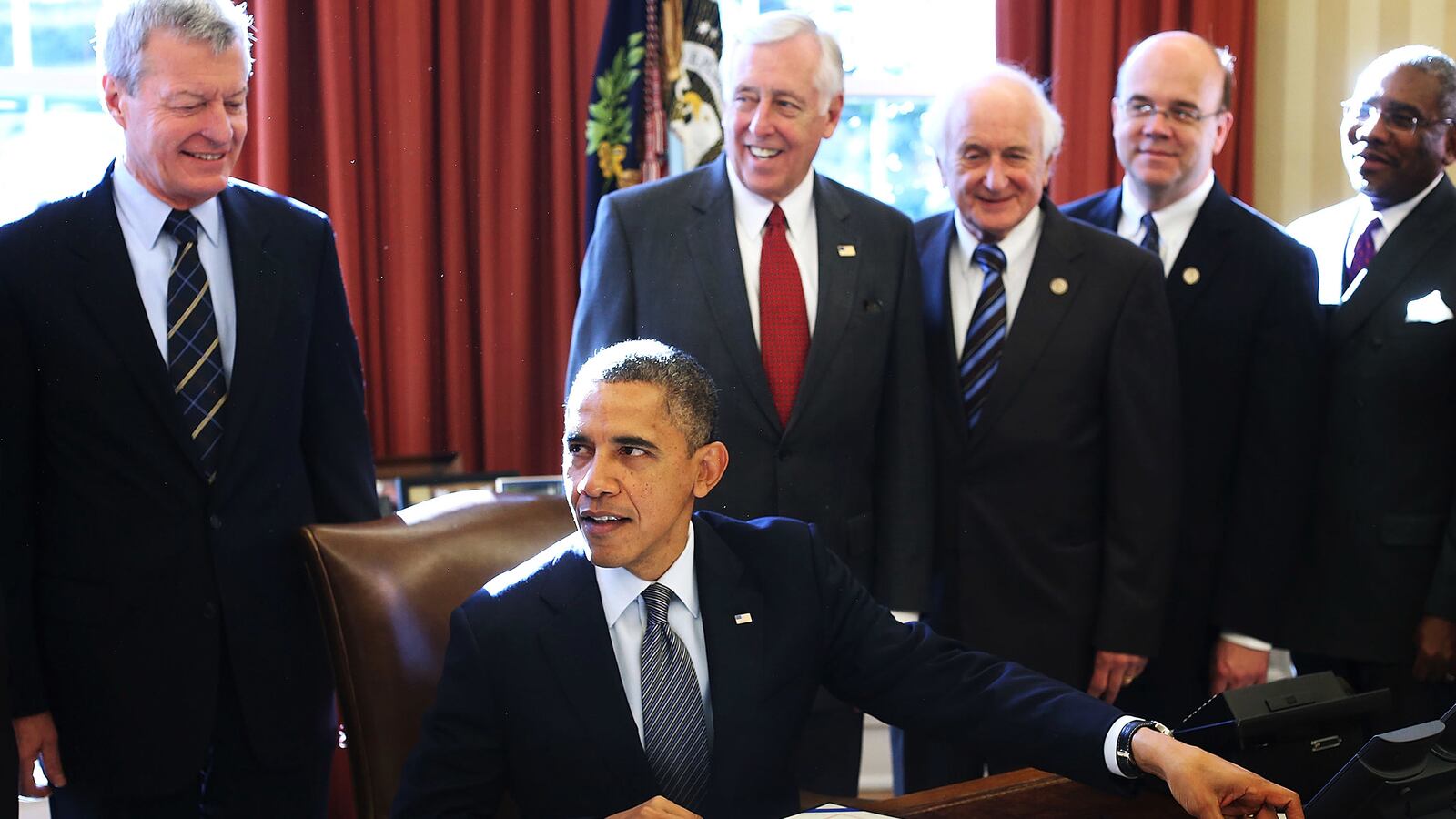So the Republicans look like crap right now. The brand, as they say, is at a horrible low. Naturally I find this amusing and satisfying. But then I recall: Well, they looked pretty bad in December 2008, too. Remember? They were written off. But then they came roaring back and really showed some muscle and swept the next elections. So what’s to prevent them from doing the same this time? Three factors, actually. History may repeat itself, as the saying goes, but never so precisely that the exact same tricks will work a second time.

Think back to four years ago. Obama hadn’t taken office yet, but he was at some stratospheric approval number. Optimism abounded. Most of all the idea that the Republicans were going to greet the Obama era by just saying no to everything seemed absurd. And the phrase tea party still referred to, you know, an afternoon soiree, where they served, you know, tea. All that changed pretty fast once Obama took office. Yes, the Republican were outrageous in opposition, but nobody ever said they weren’t good in opposition, and so it didn’t take before the “Republicans have found their legs” stories started appearing.
But that was then. Here’s what’s different now.
First, the economy. It was pretty easy for Republicans to make a chump of Obama when the country was losing 600,000 jobs a month and the unemployment was racing upward toward 10 percent and thousands of people were losing their homes. The economic crisis, in early 2009, was the context for everything else that was happening. And even though it was true then—and, entertainingly, it’s apparently still true—that people blame George W. Bush more than they do Obama, that fact didn’t prevent Hill Republicans from greeting each new bleak set of numbers with the cry that Obama’s policies were making things worse. Nothing to it.
But now, the jobless rate is falling at a decent clip, the Fed is evidently strongly committed to getting it down to 6.5 percent, confidence is up, and all the rest of it. Republicans will have no bleak numbers to bleat about. America won’t be doubting Obama’s ability to get results on his most important task. If the positive indicators keep going up, so will Obama’s job approval numbers, and Republicans will find the audience for their economic critiques to be both smaller and less persuadable.
Second, they can’t get away with the just-say-no, Berlin Wall of opposition in the same way they did four years ago. Oh, don’t get me wrong. They’ll still do it. But I don’t think they can get away with it without paying a hefty political price. After four years of no, the party now has the reputation it has rightly earned, as less willing to compromise than Obama, less trusted than he is, and just less well-liked. The broader American public is going have a lot less patience for GOP obstructionism than it did the first time around.
And third, and maybe most of all—the country has changed culturally. Four years ago, conservatives, liberals, and centrists alike all assumed that middle-of-the-road Americans were, while not Dittoheads, pretty conservative by default. Among the political class, this has meant—for pretty much my entire adult lifetime—that your average American was likely to embrace conservative arguments about the culture, and that Democrats had to be crazy to do anything but meekly suggest that they more or less agreed with a caveat or two.
But no more. With each new day that the election recedes into the past, it becomes more and more apparent just what a watershed it was. No, it wasn’t a realignment election according to the standard political science definition. But it was in a way even bigger than that. The election was a cultural watershed moment. All the old dog-whistle tricks, hating on gay people and all that, failed utterly. After decades of struggle and activism and fights and losses for the liberal side, a switch got flipped in November. Middle-of-the-road voters just stopped buying right-wing fear-mongering.
In sum, the historical circumstances dictated by these three factors mean the Republicans just aren’t going to be able to reap the same benefits from balls-to-the-wall obstructionism that they did in 2009. Therefore one of two fates awaits them. First, they will recognize that this historical moment is different, that they can’t do now what they did then. They’ll play ball, in this case, on tax rates, on immigration reform, maybe on a carbon tax. Maybe, in the wake of this unspeakable Connecticut shooting, a few of them will even acknowledge that regular citizens don’t need to buy rapid-fire automatic rifles.
Second, they won’t budge. In this case, Obama is not going to be able to steamroll them. They still control the House, and they have a large enough minority in the Senate to filibuster. And history suggests that they’ll probably win some seats in the 2014 elections, especially with more Democratic senators up for reelection than Republicans. But such small victories as they get over Obama will exact a price. The more obstructionist they are—against a newly popular president, riding a decent-to-good economy, trying to pass common-sense proposals that most Americans support, like higher tax rates at the upper-end and reform of the immigration laws—the more they will look, to more and more Americans, like a knot of toads that you wouldn’t want to put in charge of cleaning out the garage, let alone running the country.
It would all be funny if they didn’t have the power to drag the country down with them. But they do. With any luck, not for long.






